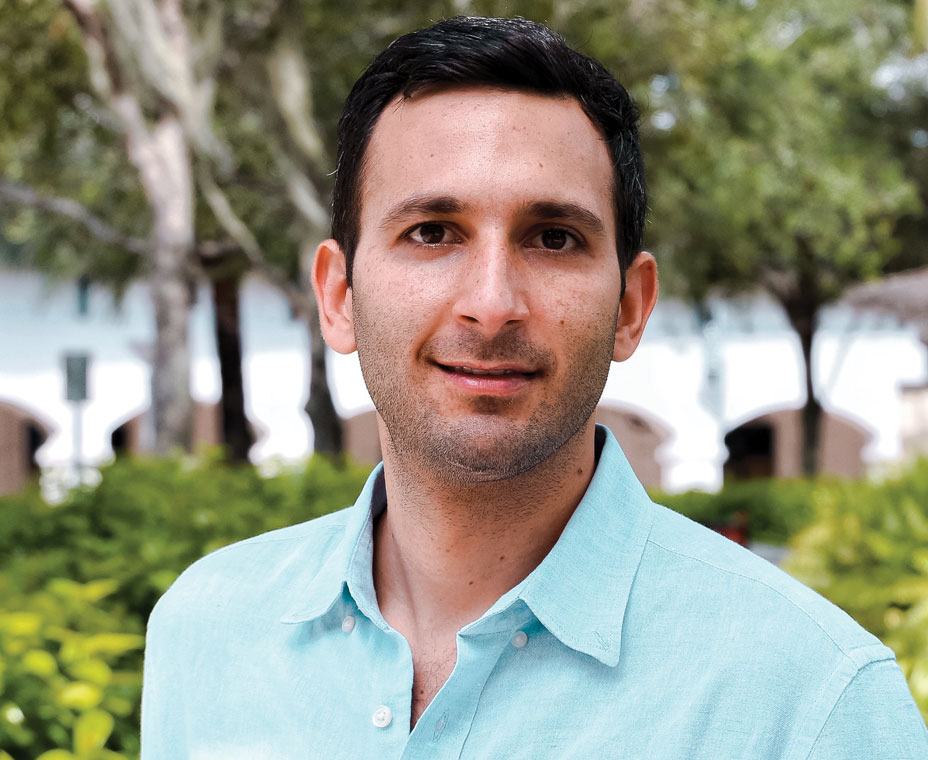Roger Duarte and Sam Gorenstein struck gold in 2012 when they opened their fast casual My Ceviche, a destination for wild-caught seafood tossed with a variety of fresh ingredients and served in bowls, salads, tacos, or burritos. The concept has already grown to six locations, with a seventh on the way.
But the business partners also recognized that a niche seafood concept might have certain growth limitations, so they set out to design a new restaurant that homed in on one of the hottest segments in fast casual: Mediterranean. The result is Zuuk Mediterranean Kitchen, a new fast casual that opened its first location in Miami last year and is preparing to open unit No. 2 in nearby Dadeland.
Executive chef Gorenstein, a two-time nominee for the James Beard “Rising Star” award who was born in Colombia and spent several years cooking in fine-dining kitchens in New York and Miami, shares his thoughts on why the business partners opted for Mediterranean cuisine—and how the new concept perfectly complements the thriving My Ceviche business.
How did Zuuk come about?
We receive a lot of real estate opportunities. But My Ceviche is a very special concept in the sense that it leans heavily toward seafood. It’s not a concept that we can deploy in every market, especially in south Florida, where the population is very diverse. We were having a lot of issues scaling up within south Florida.
My background is also the Middle East; my grandparents were born in Syria. I grew up eating all sorts of Mediterranean flavors. It’s food I cook at home. I grew up with my mother cooking it and my grandmother cooking it. We also recognized that the Mediterranean segment was one of the fastest-growing segments within the fast-casual industry. For us, it was a no-brainer. We thought we could really do everything that we’ve learned with My Ceviche, but now build a really cool fast casual solely based on Mediterranean.
It will also help My Ceviche in the sense that it’s the same consumer base; the customers who were going to My Ceviche were going two to three times a week, but where were they going the other two or three days each week?
Mediterranean encompasses a lot of different cultures, countries, and cuisines. What angle does Zuuk shoot for?
I try to drive inspiration from Israeli flavors, and some Moroccan flavors. We have some Syrian things in there, as well as some Greek stuff. And I think they all complement really well. Greek flavors are more acidic, sharp, really light fare, while Moroccan and Syrian cuisines are more pungent, stronger, bold flavors, with spicy notes. I think we’ve done a really cool job in grabbing some of the flavors that each one of these cultures is known for.
What similarities are there between Latin and Mediterranean cuisines?
They’re both really bold flavors. Both cuisines like spicy, somewhat acidic flavors, a lot of vinegars and citrus juices and spicy notes. Both cuisines use a lot of grains like rice. While Mediterranean uses chickpeas, the Latin side uses a lot of beans.
What kind of outside-the-box flavors or ingredients do you have?
We use lots of different spices, like ras el hanout, a Moroccan spice used sometimes to season our seasonal veggies that we roast. Sumac is another spice that probably very few people know exists. We make different sauces like schug; the best way to explain it is it’s like a spicy Mediterranean pesto. One of our bases is bulgur wheat, so you walk into all of these restaurants that have build-your-own menus, and rice is always a staple, and then they have brown rice or quinoa or couscous. But we offer bulgur wheat, and I think that surprises a ton of people. Grains are really making an impact; people are trying to be a lot healthier, trying to eat a lot of different grains. I think this really fills the void.
How much do you promote Zuuk as a healthy meal option?
It’s something we also do with My Ceviche, saying that it’s fresh, healthy. What interests the majority of consumers, though, is the different combinations of flavors that you can have in one place. You can have hummus, which is very neutral, but then you can have baba ghanoush, which is smoky and made with eggplant. And then you have chicken seasoned with turmeric and lemon, and you have pickled cabbage and black olives and feta cheese. It’s a lot of different flavor profiles, just in one place. And I think that really makes it very interesting to a lot of people.
This article appeared in QSR‘s September 2017 issue with the title “Chef Q&A: Sam Gorenstein.”






